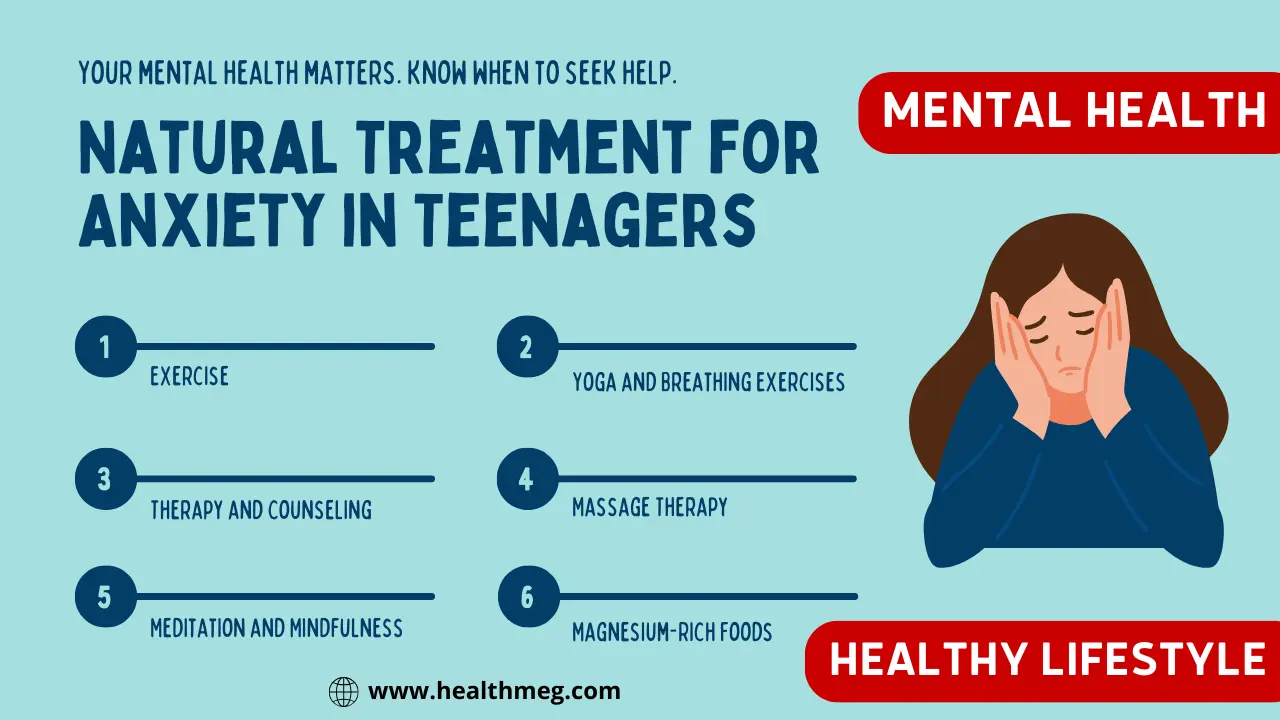Introduction
It’s that time of year again – runny noses, sinus pressure, watery eyes, sneezing and coughing. Seasonal allergies or a cold? When both allergy and cold symptoms strike, many people reach for an allergy reliever and DayQuil to tackle both. But is it safe to mix allergy meds and DayQuil?
The real concern is – Can I take allergy medicine with Dayquil?
This comprehensive guide answers whether or not you can take allergy medicine with DayQuil, ingredient concerns, the best combination medications, and safe dosage tips.
Do read the People Also Ask (FAQs) about this topic.
Key Takeaways
- Combining allergy medicine with Dayquil is generally safe, but it’s important to check the ingredients carefully.
- If you’re taking any other medications, it’s important to check with your doctor before taking allergy medicine with Dayquil.
- If you experience any side effects after taking allergy medicine with Dayquil, stop taking the medication and contact your doctor.
- There are some alternatives to taking allergy medicine and Dayquil together.
Bonus takeaway:
- If you’re not sure whether it’s safe to take allergy medicine with Dayquil, it’s always best to err on the side of caution and talk to your doctor.
Can I Take Allergy Medicine With Dayquil?
The short answer is yes – it is generally considered safe to take allergy medicine with DayQuil, especially short-term. However, there are a few precautions regarding ingredients that are important to know.
DayQuil is an over-the-counter cough and cold medication that contains acetaminophen (Tylenol) as a pain and fever reducer, plus decongestants and cough suppressants. Common decongestant ingredients like pseudoephedrine and phenylephrine constrict swollen nasal blood vessels.
Most allergy medications like Claritin, Zyrtec, Allegra and Benadryl block histamines which cause allergy symptoms like a runny nose, watery eyes and sneezing.
DayQuil combined with allergy medicine can provide more complete symptom relief by addressing both allergies and cold/flu viruses at the same time. However, both types of medicines contain active ingredients that can interact with each other, especially with prolonged use.
It’s crucial to closely check both medication labels for the active and inactive ingredients.
Key Ingredient Considerations and Interactions
While DayQuil and allergy medications are generally considered safe together for short-term use, watch out for a few key ingredients:
- Acetaminophen
- Antihistamines
- Decongestants
- Alcohol
1. Acetaminophen
DayQuil products contain the pain reliever acetaminophen. Many over-the-counter cold medicines also include acetaminophen, which you don’t want to double up on and risk liver toxicity.
Check your allergy medicine ingredients carefully and avoid doubling up on acetaminophen from multiple products. For example, Theraflu capsules contain acetaminophen along with decongestants, so avoid taking Theraflu with DayQuil.
2. Antihistamines
Chlorpheniramine maleate and diphenhydramine are first-generation antihistamines found in medicines like Benadryl and Chlor-Trimeton allergy. These create significant drowsiness.
Other newer second-generation “non-drowsy” antihistamines like loratadine (Claritin), fexofenadine (Allegra) and cetirizine (Zyrtec) are less sedating.
Still, be cautious about combining any antihistamine with DayQuil since both can cause drowsiness and the depressant effects are additive. Carefully monitor your reaction.
3. Decongestants
Many multi-symptom cold relief products contain decongestants like pseudoephedrine or phenylephrine. So does DayQuil. Doubling up on these constricting agents increases the risk of rapid heart rate, high blood pressure and insomnia.
Carefully read labels and avoid duplicating decongestant ingredients from both allergy and cold combination products. Know what relief each one provides and any ingredient overlap.
4. Alcohol
This one often gets overlooked. Allergy medicines, cold and flu products, sleep aids plus alcohol are a dangerous depressive combination that impairs coordination, judgment and reaction time.
Avoid alcohol completely when taking DayQuil and allergy or antihistamine medications to prevent unsafe enhancement of CNS depressant effects. Just don’t mix them.
Best Allergy Medicine to Take With DayQuil
If you decide to take DayQuil along with allergy medicine, these options help provide relief while avoiding negative interactions:
- Allegra (Fexofenadine) or Zyrtec (Cetirizine)
- Claritin (Loratadine)
- DayQuil and Benadryl (Diphenhydramine)
1. Allegra (Fexofenadine) or Zyrtec (Cetirizine)
These newer second-generation non-sedating antihistamines are generally recognized as safe to combine with DayQuil. Just monitor in case the depressant effects from both medications make you too drowsy.
Avoid cetirizine brands with phenylephrine like Zyrtec-D unless the DayQuil you take doesn’t contain a decongestant.
Don’t take alcohol when using these allergy meds together with DayQuil.
2. Claritin (Loratadine)
Also a second-generation non-drowsy antihistamine, loratadine has low potential to interact with DayQuil ingredients. It’s considered one of the safer options when used short-term (3-5 days).
Be sure the Claritin product doesn’t also contain a nasal decongestant like pseudoephedrine phenylephrine or a cough suppressant. Plain Claritin tablets reduce allergy symptoms without negative ingredient interactions with DayQuil.
But again, alcohol should be avoided with the combination.
3. DayQuil and Benadryl (Diphenhydramine)
This first-generation antihistamine has more sedative effects compared to newer-generation antihistamines. Combined with DayQuil increases drowsiness and cognitive issues significantly. Use extreme caution when driving or operating machinery.
Also, watch out for any multi-symptom products containing diphenhydramine like Tylenol Severe Allergy. Check labels carefully for duplication and sedative effects.
DayQuil Severe Allergy and Congestion
For those wanting one product for both allergy and cold/flu symptoms, DayQuil now makes Severe Allergy and congestion caplets. They combine acetaminophen, decongestant (phenylephrine) and antihistamine (chlorpheniramine) similar to allergy medicine with the original cold & flu ingredients.
This dual-action formula eliminates negative interactions by combining separate allergy and cold meds containing the same ingredients. It effectively treats upper respiratory allergies plus cold and flu symptoms like cough, congestion, aches and fever.
Just avoid taking additional decongestants, antihistamines or acetaminophen when using the Severe Allergy & Congestion formula.
Safe Dosage Amounts
When taking DayQuil with allergy medicine, never exceed the recommended dosage amounts on either the product label or in this table:
| Medicine | Total Daily Dose |
| DayQuil Liquid | 120 ml (2-3 doses) every 6-8 hours |
| DayQuil Capsules | 3-6 capsules per day |
| Common decongestants like pseudoephedrine and phenylephrine | 240 mg total per day |
| Acetaminophen (Tylenol) | No more than 3000 mg per day from all sources |
| Antihistamine tablets | Vary on product from 1 tablet every 4-12 hours |
| Loratadine (Claritin) | No more than one 10mg tablet every 24 hours |
| Diphenhydramine (Benadryl) | 50-100 mg every 4-6 hours usually |
| Alcohol | NONE |
Take the minimum effective dosage needed to treat and control symptoms. Exceeding maximum safe amounts increases health risks like liver injury or overdose.
Also, don’t take DayQuil or allergy medicine for more than 7 consecutive days unless directed by your doctor.
When To Avoid Combining DayQuil and Allergy Medications
There are certain higher-risk individuals and medications that should avoid pairing DayQuil with allergy pills:
- People over 60 (increased side effects)
- Pregnant or breastfeeding women
- Children under age 12
- Taking antidepressants (MAO inhibitors, SSRIs etc.)
- Taking sedatives like tranquilizers or sleep medications
- Diabetics – decongestants may increase glucose levels
- Enlarged prostate or urinary retention issues
- Heart disease, high blood pressure, thyroid disease or glaucoma patients – avoid decongestants
- Liver issues – avoid acetaminophen
- More than 2 alcoholic beverages per day
For these populations or conditions, check with your pharmacist or health provider before taking allergy meds with DayQuil. Look into safer natural allergy remedies instead.
Can I Take DayQuil and Allergy Medicine Together Long-Term?
While using DayQuil and allergy relievers together is generally OK short-term (3-5 days), it’s recommended to avoid prolonged use due to the increased risk of side effects.
- Decongestant nasal sprays like Afrin shouldn’t be used longer than 3 days to avoid worsening congestion when stopped.
- Constant diphenhydramine (Benadryl) use risks constipation, urinary retention and increased dementia risk in the elderly.
- The sedation, dizziness and cognitive issues from ongoing antihistamine use also increase fall risks.
- For chronic sinus congestion symptoms or chronic idiopathic urticaria lasting longer than 7-10 days, see your doctor for evaluation rather than continually using over-the-counter allergy and cold combinations long-term.
- Prescription steroid nasal sprays, antihistamine alternatives or allergy shots may be safer options for lasting relief.
Conclusion
Can you take allergy medicine with DayQuil? Yes, when used occasionally and carefully for less than one week.
But be sure to:
- Closely check active ingredients on both products’ labels to avoid duplicating decongestants, antihistamines or acetaminophen
- Watch out for non-drowsy antihistamines that still have some sedative effects
- NEVER mix it with alcohol
- Limit use to less than 7 days
Certain medical conditions also warrant caution with DayQuil and allergy medication combinations. For ongoing symptoms lasting more than one to two weeks, pursue medical advice rather than continual over-the-counter use to identify any underlying causes.
When used properly and for short durations, allergy medicine with DayQuil can safely alleviate congestion along with sneezing and runny noses. However, exceeding safe ingredient doses or durations increases health risks.
Use common sense when combining medications and talk with your pharmacist. Report any alarming side effects to your doctor right away. This helps ensure you find congestion and allergy relief safely.
People Also Ask (FAQs)
Q) Is it okay to take DayQuil and allergy medicine?
A) Yes, it is generally considered safe to take DayQuil and allergy medicine together, especially for short-term relief. However, be cautious of potential interactions and carefully check the active ingredients to avoid overdosing on specific components.
Q) Can you take cold medicine and allergy medicine at the same time?
A) It’s generally advisable to avoid combining cold medicine and allergy medicine without consulting a healthcare professional, as some ingredients may overlap, leading to potential overdosing. Always check the labels and consult with a doctor for personalized advice on simultaneous use.
Q) Can I take allergy medicine with Nyquil?
A) It’s recommended to exercise caution when combining allergy medicine with Nyquil, as both may contain similar active ingredients like antihistamines or decongestants. Consult with a healthcare professional to ensure safe usage and prevent potential interactions or side effects.
Q) Does DayQuil and Nightquil help with allergies?
A) While DayQuil and NyQuil are designed to alleviate cold and flu symptoms, they may provide some relief for allergy symptoms due to shared ingredients like antihistamines and decongestants. However, it’s advisable to use dedicated allergy medicine for more targeted and effective relief.
Q) Which medicine is best for cold allergy?
A) For cold allergies, antihistamines like cetirizine (Zyrtec) or loratadine (Claritin) can be effective in managing symptoms. However, you must consult with a healthcare professional to determine the most suitable medicine based on individual health conditions and specific symptoms.
Q) What should you not mix with DayQuil?
A) Avoid mixing DayQuil with other medications that contain similar ingredients, such as additional cough and cold medicines, to prevent the risk of overdosing on specific components like acetaminophen or decongestants. Always read labels carefully and consult with a healthcare professional if uncertain about potential interactions.
Q) Does DayQuil help with allergies?
A) DayQuil is primarily designed to alleviate symptoms associated with colds and flu, not specifically targeted for allergies. While it may provide some relief for overlapping symptoms, using a dedicated allergy medicine with antihistamines is generally more effective for managing allergic reactions.
Q) How do I know if it’s allergies or a cold?
A) Allergies typically involve symptoms like itching eyes and a clear nasal discharge, while a cold often includes a sore throat, body aches, and coloured mucus. If symptoms persist or worsen, consulting a healthcare professional can help differentiate between allergies and a cold.
Q) Can you take Benadryl and DayQuil together?
A) Combining Benadryl and DayQuil is generally not recommended, as both may contain similar active ingredients, leading to an increased risk of side effects like drowsiness and dizziness. It’s advisable to consult with a healthcare professional before taking them together to ensure safe and effective symptom management.
References
Reference Source:
- American Academy of Allergy, Asthma & Immunology (AAAAI)












